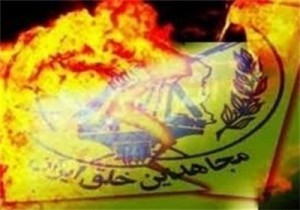 TEHRAN (FNA)- A senior Iranian lawmaker strongly criticized the United Nations for appointing a special advisor for the relocation of the Mojahedin-e Khalq Organization (MKO, also known as MEK, NCRI or PMOI) members from Camp Liberty in Iraq.
TEHRAN (FNA)- A senior Iranian lawmaker strongly criticized the United Nations for appointing a special advisor for the relocation of the Mojahedin-e Khalq Organization (MKO, also known as MEK, NCRI or PMOI) members from Camp Liberty in Iraq.ďThe UN should confront the terrorists, rather than protecting them,Ē a member of the parliamentís National Security and Foreign Policy Commission Nozar Shafiyee said on Monday.
He warned that deploying the MKO terrorists in a third country will be a mistake because Iran is rapidly expanding its relations with the world countries and they are also interacting with Iran and MKO's presence in such countries might affect these relations.
ďWhat causes no country to accept the MKO is the terrorist nature of this grouplet,Ē Shafiyee said.
On Sunday, UN Secretary General Ban Ki-moon appointed a former US Homeland Security Undersecretary as his special advisor for relocation of the MKO members from Camp Liberty in Iraq.
According to Habilian Association, Jane Holl Luteís appointment came after two years of quite fruitless painstaking efforts of the UNís refugee agency and UN Assistance Mission for Iraq for the resettlement of MKO members in third countries.
ďHoll Lute will work with a wide range of stakeholders, in particular the (UN) Member States, to assist in relocating the camp residents,Ē read a statement from Mr. Ban's spokesperson, adding that she will also collaborate with Nickolay Mladenov, the UN representative in Iraq.
Earlier last week, the UNHCR said 1,400 MKO members in Iraq are ready for relocation to third countries.
Former UN Special Representative had formerly asserted that finding homes for the MKO members ďis the most difficult part of the story.Ē
The last group of MKO terrorists at Camp Ashraf, now called Camp New Iraq, was evicted by the Iraqi government on September 11 to join other members of the terrorist group in the former US-held Camp Liberty, now called Camp Hurriya, near Baghdad International Airport where they are awaiting relocation to other countries.
The MKO, founded in the 1960s, blended elements of Islamism and Stalinism and participated in the overthrow of the US-backed Shah of Iran in 1979. Ahead of the revolution, the MKO conducted attacks and assassinations against both Iranian and western targets.
The group started assassination of the citizens and officials after the revolution in a bid to take control of the newly-established Islamic Republic. It killed several of Iran's new leaders in the early years after the revolution, including the then President, Mohammad Ali Rajayee, Prime Minister, Mohammad Javad Bahonar and the Judiciary Chief, Mohammad Hossein Beheshti who were killed in bomb attacks by the MKO members in 1981.
The group fled to Iraq in 1986, where it was protected by Saddam Hussein and where it helped the Iraqi dictator suppress Shiite and Kurd uprisings in the country.
The terrorist group joined Saddamís army during the Iraqi imposed war on Iran (1980-1988) and helped Saddam and killed thousands of Iranian civilians and soldiers during the US-backed Iraqi imposed war on Iran.
Since the 2003 US invasion of Iraq, the group, which now adheres to a pro-free-market philosophy, has been strongly backed by neo-conservatives in the United States, who eventually took the MKO off the US terror list.
The US formally removed the MKO from its list of terror organizations in early September 2012, one week after the then Secretary of State, Hillary Clinton, sent the US Congress a classified communication about the move. The decision made by Clinton enabled the group to have its assets under the US jurisdiction unfrozen and do business with the American entities, the State Department said in a statement at the time.
By Fars News Agency†
The Iran Project is not responsible for the content of quoted articles.










